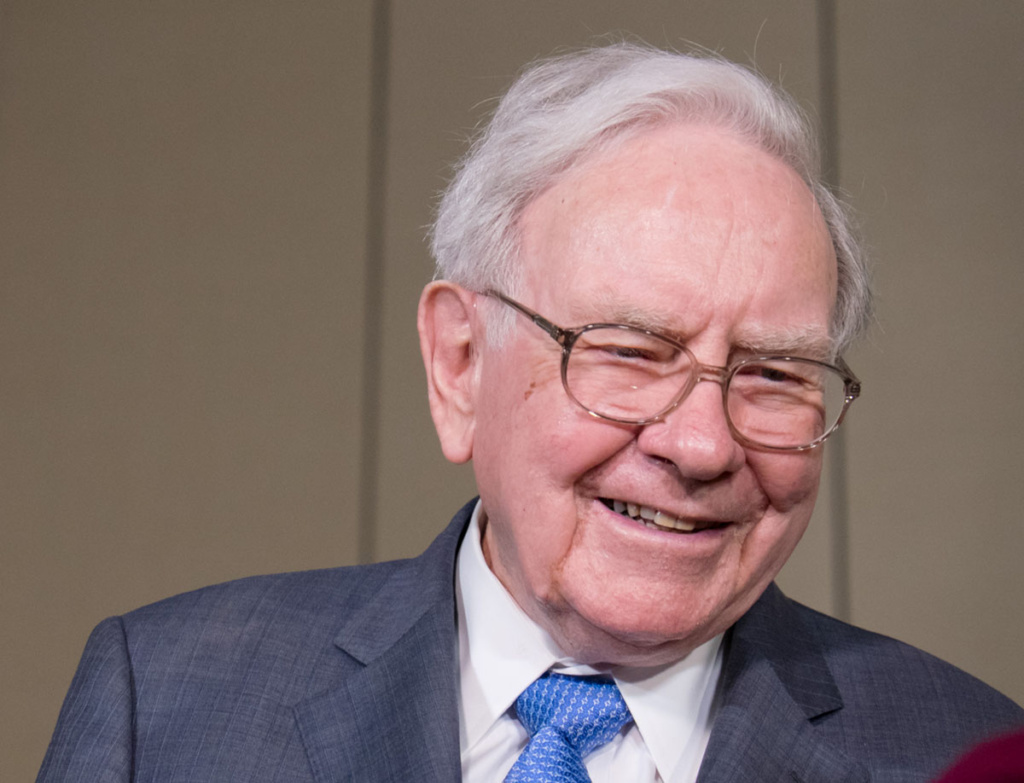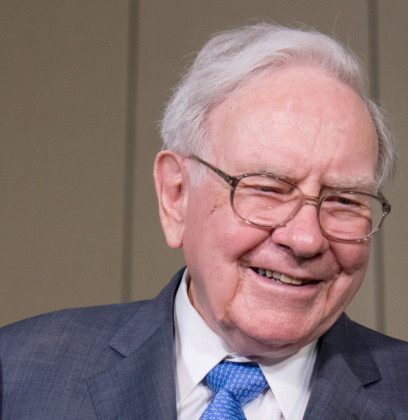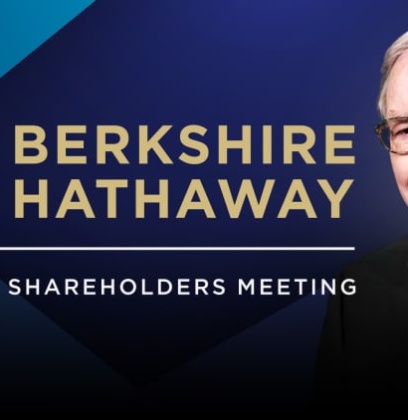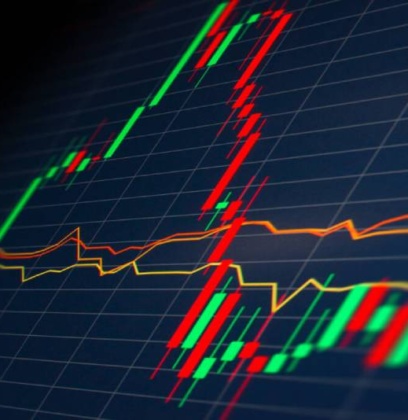
Warren Buffett’s annual letters are eagerly awaited by investors worldwide, not just for their insights into Berkshire Hathaway’s performance, but also for the invaluable lessons they impart. In his 2023 letter, Buffett shared several nuggets of wisdom that resonate deeply with investors of all levels of experience. Let’s delve into these lessons and explore their relevance in today’s ever-changing investment landscape.
Patience and Staying the Course
Buffett emphasises the importance of patience when it comes to investing in truly exceptional businesses like Coca-Cola and American Express. He advocates for staying the course even when faced with market fluctuations, highlighting how the long-term rewards of holding onto quality investments can offset short-term volatility.
“The lesson from Coke and AMEX? When you find a truly wonderful business, stick with it. Patience pays, and one wonderful business can offset the many mediocre decisions that are inevitable.”
Berkshire is Built to Last
Buffett reaffirms Berkshire’s enduring strength and its ability to weather economic storms. He underscores the company’s commitment to avoiding permanent loss of capital, positioning Berkshire to outperform the average American corporation while minimising risk.
“With that focus, and with our present mix of businesses, Berkshire should do a bit better than the average American corporation and, more importantly, should also operate with materially less risk of permanent loss of capital. Anything beyond “slightly better,” though, is wishful thinking. This modest aspiration wasn’t the case when Bertie went all-in on Berkshire – but it is now.”
“One investment rule at Berkshire has not and will not change: Never risk permanent loss of capital. Thanks to the American tailwind and the power of compound interest, the arena in which we operate has been – and will be – rewarding if you make a couple of good decisions during a lifetime and avoid serious mistakes”.
Be Prepared for Market Crashes
Buffett reminds investors to be prepared for market downturns, emphasising Berkshire’s resilience in the face of financial disasters. He warns against complacency and stresses the importance of staying vigilant, especially in times of economic uncertainty.
“I believe Berkshire can handle financial disasters of a magnitude beyond any heretofore experienced. This ability is one we will not relinquish. When economic upsets occur, as they will, Berkshire’s goal will be to function as an asset to the country – just as it was in a very minor way in 2008-9 – and to help extinguish the financial fire rather than to be among the many companies that, inadvertently or otherwise, ignited the conflagration.”
“Occasionally, markets and/or the economy will cause stocks and bonds of some large and fundamentally good businesses to be strikingly mispriced. Indeed, markets can – and will – unpredictably seize up or even vanish as they did for four months in 1914 and for a few days in 2001. If you believe that American investors are now more stable than in the past, think back to September 2008.
Speed of communication and the wonders of technology facilitate instant worldwide paralysis, and we have come a long way since smoke signals. Such instant panics won’t happen often – but they will happen”.
Markets Are More ‘Casino’-Like Now
Buffett cautions against the speculative nature of today’s markets, noting the prevalence of casino-like behaviour among investors. He highlights Berkshire’s ability to capitalise on market opportunities while maintaining a disciplined approach to investing.
“Berkshire’s ability to immediately respond to market seizures with both huge sums and certainty of performance may offer us an occasional large-scale opportunity. Though the stock market is massively larger than it was in our early years, today’s active participants are neither more emotionally stable nor better taught than when I was in school. For whatever reason, markets now exhibit far more casino-like behaviour than they did when I was young. The casino now resides in many homes and daily tempts the occupants.”
Be Realistic
Buffett advocates for a realistic approach to investing, focusing on the bottom-line value of businesses rather than getting caught up in accounting metrics. He emphasises the importance of diversification and resilience in navigating challenging market conditions.
“Our goal is realistic. Berkshire’s strength comes from its Niagara of diverse earnings delivered after interest costs, taxes and substantial charges for depreciation and amortisation (“EBITDA” is a banned measurement at Berkshire). We also operate with minimal requirements for cash, even if the country encounters a prolonged period of global economic weakness, fear and near-paralysis.”
“Some businesses will not work out as expected or hit challenging periods, sticking with these or having a diverse set of earnings will help to smooth over these short-term performance challenges.”
Focus on Bottom-Line Value
Buffett underscores the significance of focusing on operating earnings rather than relying solely on accounting figures. He highlights Berkshire’s commitment to transparency and its preference for evaluating businesses based on their fundamental performance.
“So sanctified, this worse-than-useless “net income” figure quickly gets transmitted throughout the world via the internet and media. All parties believe they have done their job – and, legally, they have.”
“We, however, are left uncomfortable. At Berkshire, our view is that “earnings” should be a sensible concept that Bertie will find somewhat useful – but only as a starting point – in evaluating a business. Accordingly, Berkshire also reports to Bertie and you what we call “operating earnings.” Here is the story they tell: $27.6 billion for 2021; $30.9 billion for 2022 and $37.4 billion for 2023”.
“The primary difference between the mandated figures and the ones Berkshire prefers is that we exclude unrealised capital gains or losses that at times can exceed $5 billion a day. Ironically, our preference was pretty much the rule until 2018, when the “improvement” was mandated. Galileo’s experience, several centuries ago, should have taught us not to mess with mandates from on high. But, at Berkshire, we can be stubborn.”
Built to Do Better Than Average with Lower Risk
Buffett reiterates Berkshire’s goal of outperforming the average American corporation while mitigating the risk of capital loss. He acknowledges the challenges of sustaining high growth rates but remains confident in Berkshire’s ability to deliver favorable returns over the long term.
“There remain only a handful of companies in this country capable of truly moving the needle at Berkshire, and they have been endlessly picked over by us and by others. Some we can value; some we can’t. And, if we can, they have to be attractively priced. Outside the U.S., there are essentially no candidates that are meaningful options for capital deployment at Berkshire. All in all, we have no possibility of eye-popping performance.”
“Berkshire should do a bit better than the average American corporation and, more importantly, should also operate with materially less risk of permanent loss of capital. Anything beyond “slightly better,” though, is wishful thinking. This modest aspiration wasn’t the case when Bertie went all-in on Berkshire – but it is now.”
Warren Buffett’s insights from his 2023 letter offer timeless lessons for investors seeking to navigate today’s complex markets. By embracing patience, resilience, and long-term thinking, investors can position themselves for success and weather any storms that may come their way. As Buffett himself famously said, “The stock market is designed to transfer money from the Active to the Patient.”












